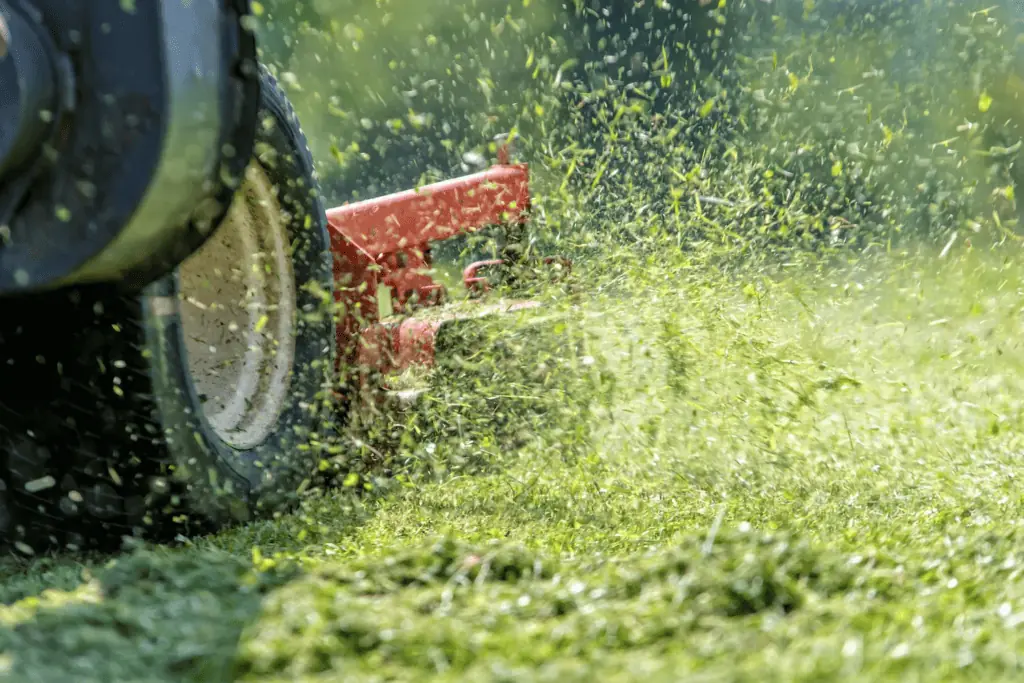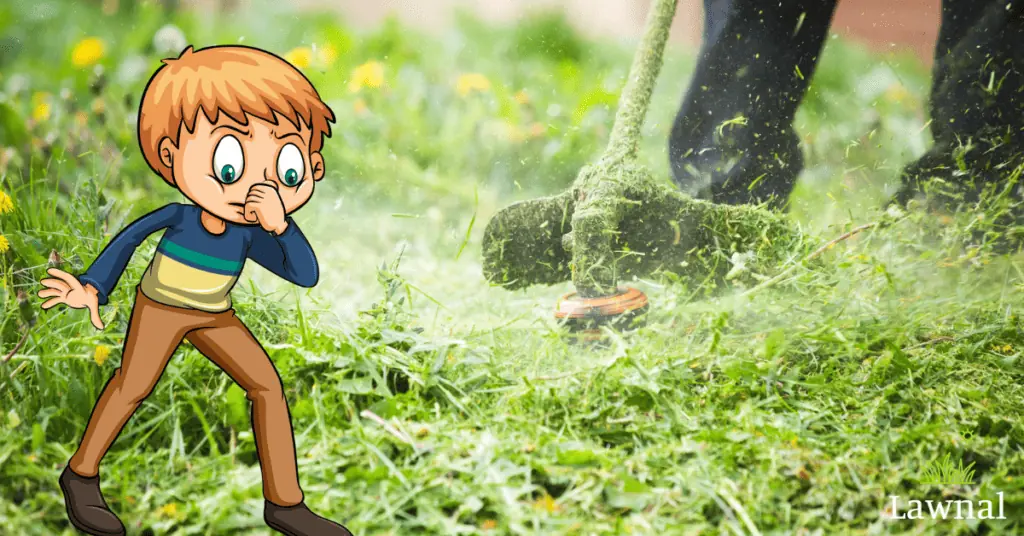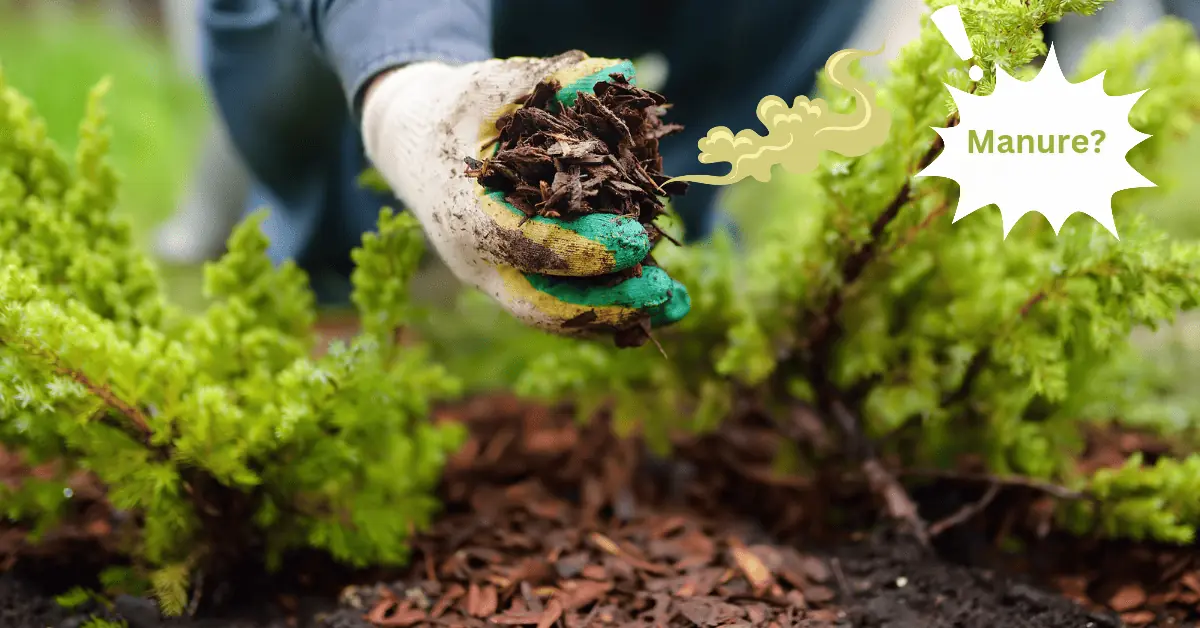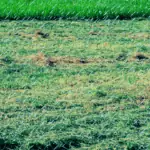Have you ever been mowing your lawn on a beautiful summer day and suddenly noticed a sweet, fresh smell? That smell is unmistakable – it’s the scent of freshly cut grass. However, why does freshly cut grass smell so strongly? Does it apply to all varieties of grass equally? And is breathing it in harmful?
This article will delve into the intriguing science of why freshly cut grass smells. It examines the chemical processes within the grass and how external elements like sunshine and humidity contribute to that distinctive odor.
It also reviews some advice for limiting exposure to possibly dangerous particles and whether breathing in this smell is safe. Read on to learn the secrets behind the scent of freshly cut grass, whether you’re a fan of lawn maintenance or just like a breath of fresh air.
The Science Behind the Smell
Have you ever wondered why grass smells so sweet and fresh when you cut it? The reason lies in the science behind the smell. Grass leaves and stems contain a group of chemicals called terpenes responsible for the aroma. When you cut grass, you break the leaves and stems, releasing these chemicals into the air.
The most prominent terpene in the grass is called myrcene. Myrcene is also found in hops, which gives beer its distinct aroma. Myrcene is released into the air when you cut grass, creating that sweet, fresh smell everyone loves. In addition to myrcene, grass contains other terpenes, such as pinene, limonene, and care, contributing to the overall smell.
Interestingly, not all grass smells the same when you cut it. Different types of grass contain different terpenes, which create unique smells. For example, Bermuda grass smells slightly different from Kentucky bluegrass. Some people even believe that freshly cut grass smells different depending on the time of day or the weather.
The Evolutionary Purpose of the Smell

Let’s investigate why grasses have evolved to generate this scent now that what produces the smell of freshly cut grass has been known. According to scientists, the delicious scent of newly cut grass serves as a defensive mechanism for the plant against predators.
The fragrance of freshly cut grass serves as a warning indication to animals and insects that the grass has been harmed. This fragrance forewarns them to avoid the region since it is probably home to other predators seeking a meal. Additionally, the aroma draws predator-feeding insects, which protect the plant.
The lovely scent of freshly cut grass preserves the plant and communicates between plants. Plants in the area may detect toxins released into the air when grass gets chopped. Through this communication, adjacent plants may enhance their defenses against predators and prepare for any potential danger.
The Psychology of the Smell
Have you ever noticed how the smell of fresh-cut grass can make you feel relaxed and happy? This is not just a coincidence. The smell of fresh-cut grass has been shown to positively affect our moods and emotions.
Studies have found that the smell of fresh-cut grass can reduce stress and anxiety and even improve our memory and cognitive function. The smell of fresh-cut grass has also been shown to have a calming effect, which is why it is often used in aromatherapy and relaxation techniques.
The positive effects of the smell of fresh-cut grass on our moods and emotions can be attributed to our evolutionary history. Humans have evolved to associate the smell of fresh-cut grass with safety and relaxation. In the early days of human history, the smell of fresh-cut grass meant that predators had been driven away, and it was safe to relax and rest.
The Cultural Significance of the Smell
Different places place a great deal of cultural value on the scent of freshly cut grass. Many people like the smell while relaxing in their gardens or parks since it is connected to leisure and relaxation in certain nations. People enjoying outdoor activities like sports or picnics on recently mowed grass are a typical sight.
Furthermore, people frequently like the scent of freshly cut grass while watching a game on sports grounds and in stadiums, which are also linked with that scent. The aroma is connected to the beginning of summer in many cultures and is seen as a sign of fresh starts.
Additionally, the aroma of recently cut grass has appeared in numerous literary and artistic works. Poets and writers have frequently utilized the smell as a metaphor for various feelings, such as innocence and nostalgia. The sound of lawnmowers cutting grass has been used in musical compositions to reflect outdoor noises and natural rhythms.
Many nations now consider the aroma of recently cut grass an integral element of their culture. Due to its associations with recreation, sports, and fresh starts, it is a common component of many people’s outdoor experiences. The aroma has become a well-liked literary and artistic metaphor because of its capacity to induce sentiments of youth and nostalgia.
The Emotional Connection to the Smell

Beyond the science and cultural significance of the smell of freshly cut grass, there is also an emotional connection that many people have to this aroma. For some, the scent of cut grass is linked to happy childhood memories of playing outside during summer. The smell may remind them of playing in the backyard or at a local park and evoke joy and nostalgia.
Additionally, the smell of cut grass has been shown to have a calming effect on some people. Even products are designed to replicate the scent of freshly cut grass to promote relaxation and reduce stress.
On the other hand, for those who suffer from allergies, the smell of cut grass may trigger negative emotions associated with their physical discomfort. It is important to note that while the smell of cut grass is generally considered pleasant, it can also have negative associations for some individuals.
Overall, the emotional connection to the smell of cut grass is a vital aspect to consider when exploring why this aroma is so universally loved. It adds another layer of complexity to the science and cultural significance of the scent and highlights the power of scent in our daily lives.
Conclusion
The scent of newly cut grass is distinctive, revitalizing, and well-known. This article has already looked at why cutting grass causes evokes a good smell. It has examined the chemistry of cutting grass, how it affects the grass, and how the environment affects the fragrance.
As a result of a chemical substance termed “green leaf volatiles” (GLVs), which are emitted from the grass blades when injured or cut, grasses give out a distinct smell when you cut them. These substances are in charge of giving newly cut grass its enticing and pleasant scent.
Many people are familiar with freshly cut grass’s unique and energizing fragrance. The chemistry of cutting grass has been discussed, as well as how it affects the grass and how the environment impacts the smell.
Now that you know that grasses have a unique fragrance when you cut them, you can always brace up for the impact, especially if you dislike it. Thanks to the chemical elements that combine to produce freshly cut grass’s alluring and pleasant aroma. Furthermore, factors like temperature, humidity, and the kind of grass may impact the intensity and duration of the scent.
Sources:
- Ameye, M., Allmann, S., Verwaeren, J., Smagghe, G., Haesaert, G., Schuurink, R. C., & Audenaert, K. (2018). Green leaf volatile production by plants: A meta-analysis. New Phytologist, 220(3), 666-683. https://doi.org/10.1111/nph.14671
- War, A. R., Paulraj, M. G., Ahmad, T., Buhroo, A. A., Hussain, B., Ignacimuthu, S., & Sharma, H. C. (2012). Mechanisms of plant defense against insect herbivores. Plant Signaling & Behavior, 7(10), 1306-1320. https://doi.org/10.4161/psb.21663






